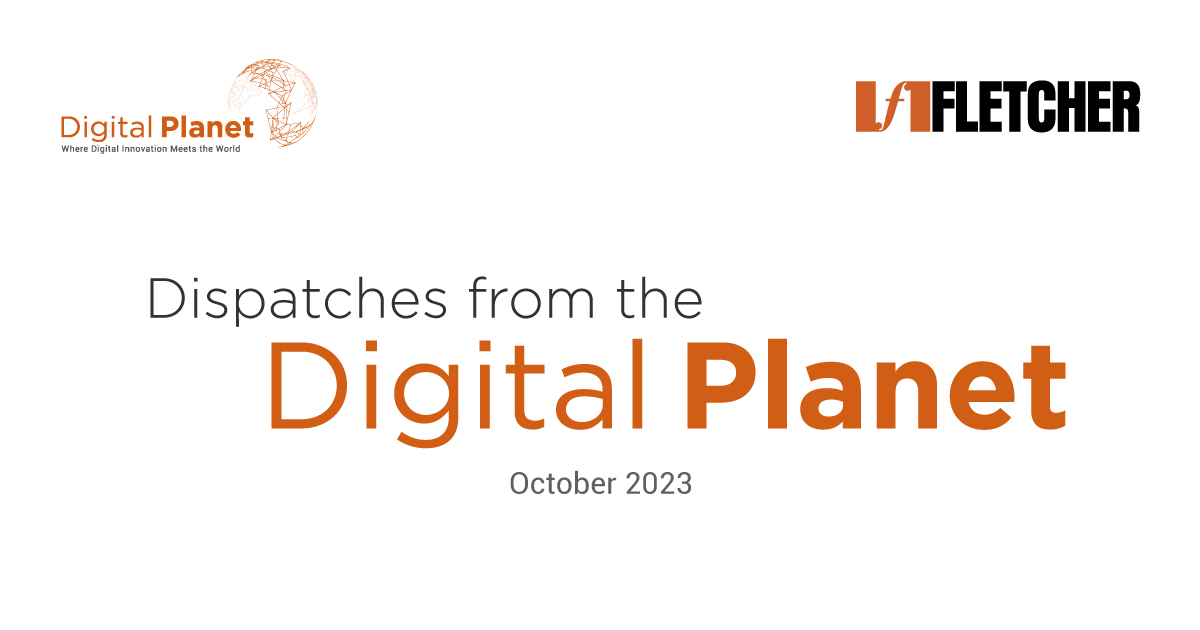
Dispatch from the Digital Planet: October 2023
Dispatch from the Digital Planet is a monthly bulletin that talks about new updates in digital innovation across the world and their impact.

Dispatch from the Digital Planet is a monthly bulletin that talks about new updates in digital innovation across the world and their impact.

We studied the role of Systems Orchestrators in driving systemic changes on the ground to boost digital ecosystems and create jobs. We found that these orchestrators bring distinct advantages to transforming perceptions in the region.
In collaboration with Dalberg
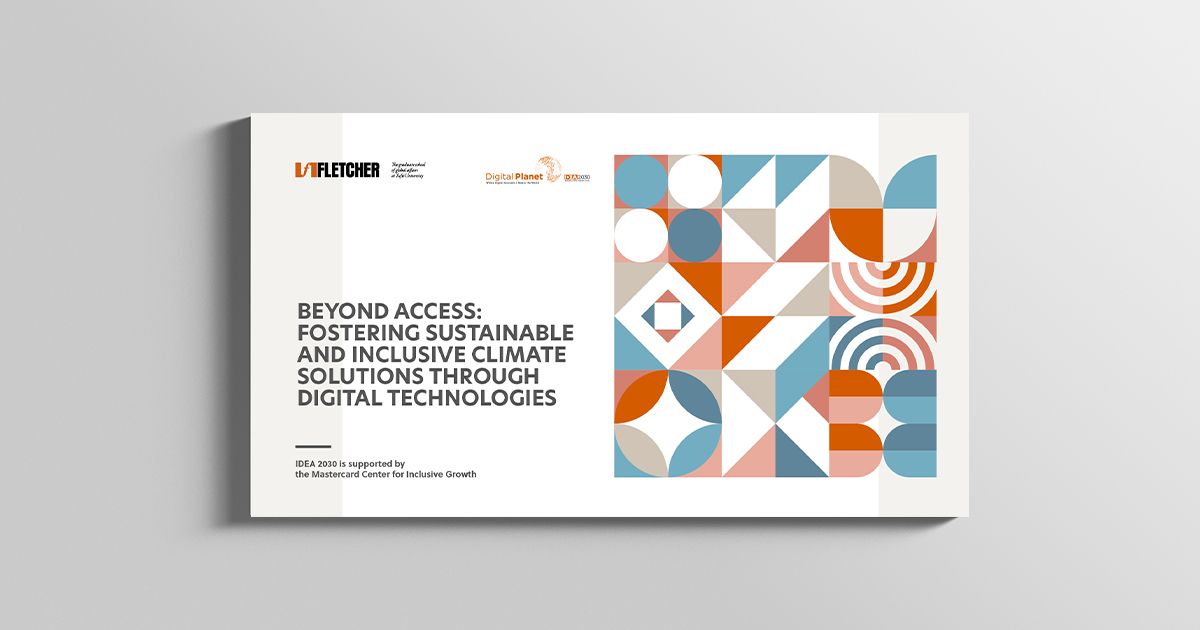
Innovative businesses are key to sustainable development. This research highlights three companies: Husk Power Systems (sustainable energy), Nexsis (solar panels for essential services), and ThredUp (secondhand e-commerce). Insights emphasize the value of pay-as-you-go models, digital tech’s role in sustainability, women’s empowerment via regenerative tech, the need for government support in renewables, and maintaining consumer demand.
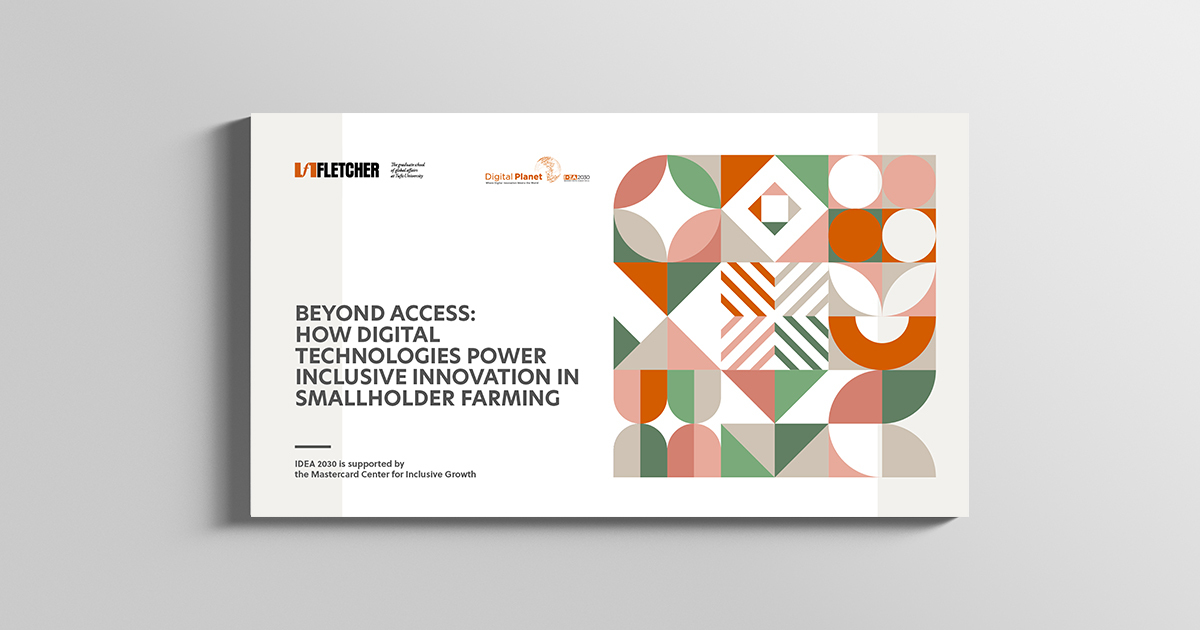
In this second edition of the case compendium, we cover three
enterprises working in the education technology (ed-tech)
and upskilling industry in three distinct emerging markets.

Women remain under-represented in high-paying technical and decision-making roles in STEM professions – a scenario that exposes the Achilles’ heel of the entire technology industry.
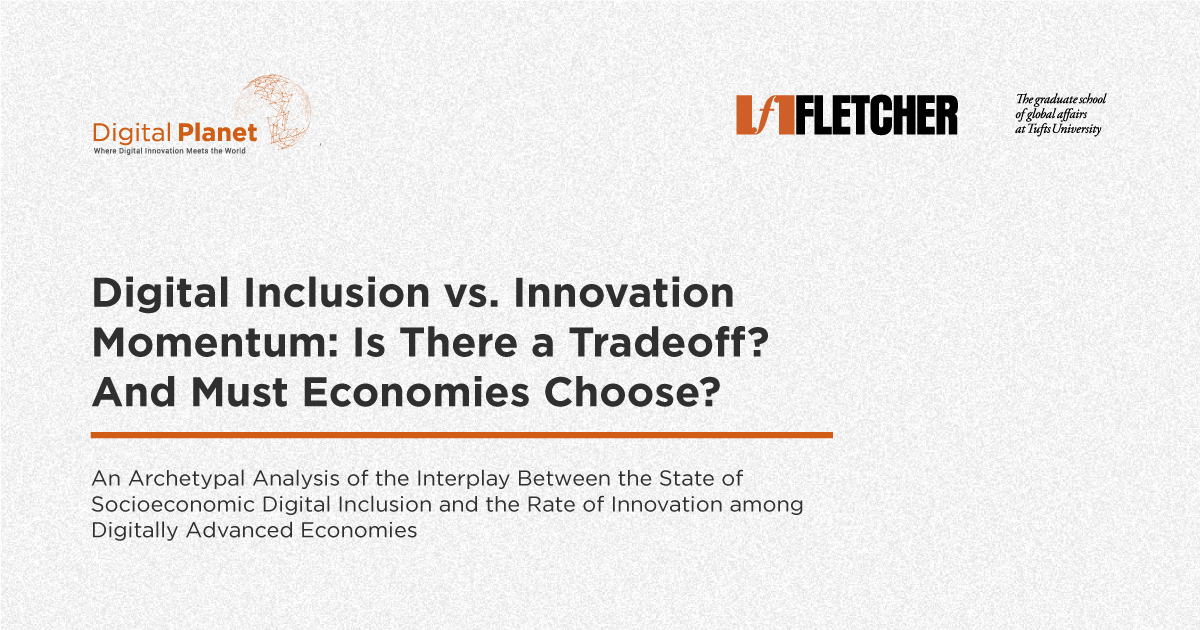
IDEA 2030’s report studies the link between digital inclusion and innovation. Key insight: As more join the digital economy, value creation focuses on affluent users, widening digital disparities. Policy interventions are needed for inclusive innovation.
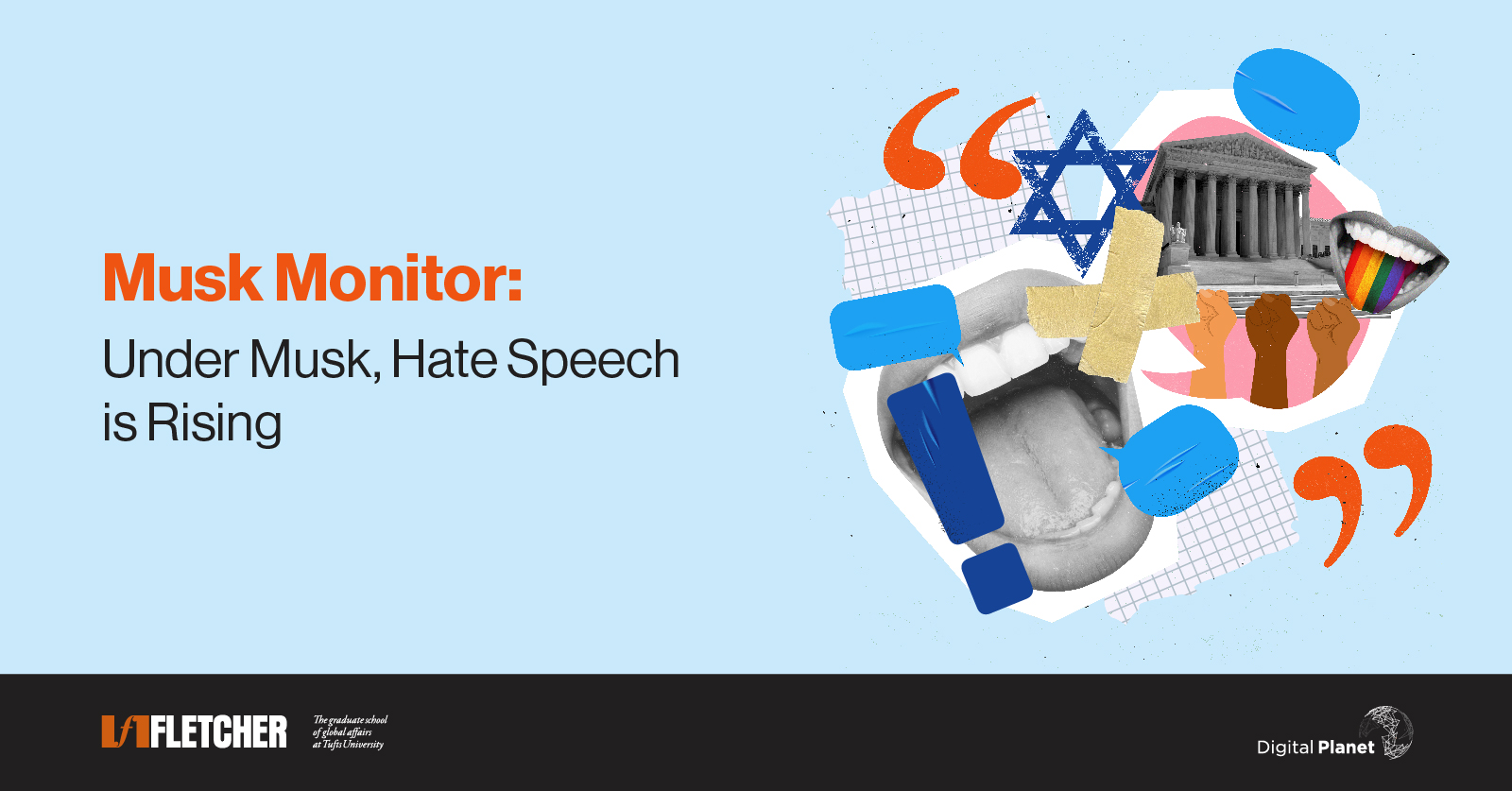
Post Elon Musk’s Twitter takeover, hate speech surged. We examined antisemitism, anti-LGBTQ+, racial hate. Analysis (Mar’22-Jan’23) revealed: hate speech volume increased, discourse quality worsened. Despite slight policy shift, toxicity persisted under Musk’s Twitter.

Inclusive businesses use digital tech to advance global sustainability, worth $12-15T yearly. Studies highlight the need for trust, low-tech solutions, and environmental focus.

The under-representation of women in high-paying STEM roles is a vexing issue that exposes a systemic inertia across the industry.

Discover Ukraine’s Resilient Tech Economy Amidst Conflict. President Zelensky prioritizes economic preservation in the face of war, removing obstacles for SMEs. Tech sector fuels growth, accounting for $2B in Q1 2022. Learn how digital infrastructure, contingency plans, tax breaks, and security training contribute to its success. Follow our series ‘Imagining a Digital Economy for All in Ukraine’ to explore insights from industry leaders navigating the challenges. Adaptability, collaboration, and innovation redefine the future of work in a dynamic landscape.
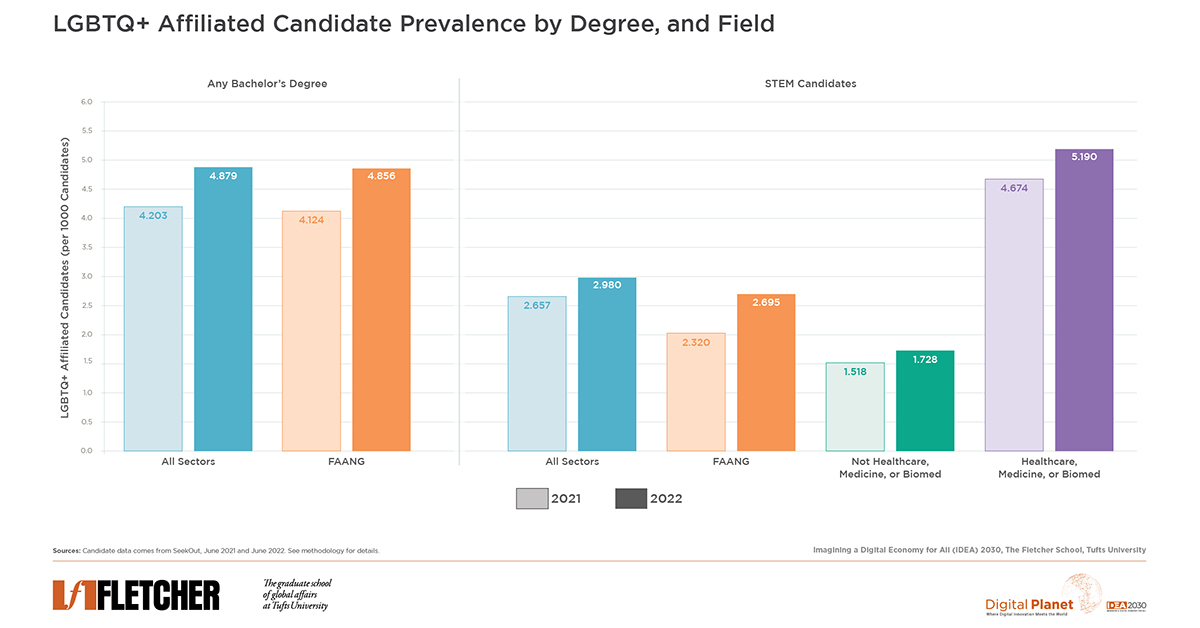
For Pride Month 2022, Digital Planet updates LGBTQ+ representation analysis in STEM. Affiliation disparities persist, with women in STEM and FAANG facing challenges. Younger STEM candidates lag behind college graduates in LGBTQ+ affiliation.

The needs of the global sustainable development agenda are both broad and urgent, and innovation models are central to addressing them in a timely, efficient, and scalable manner, from promoting inclusive growth and ensuring the longevity of natural resources to addressing issues across the state of the human condition.
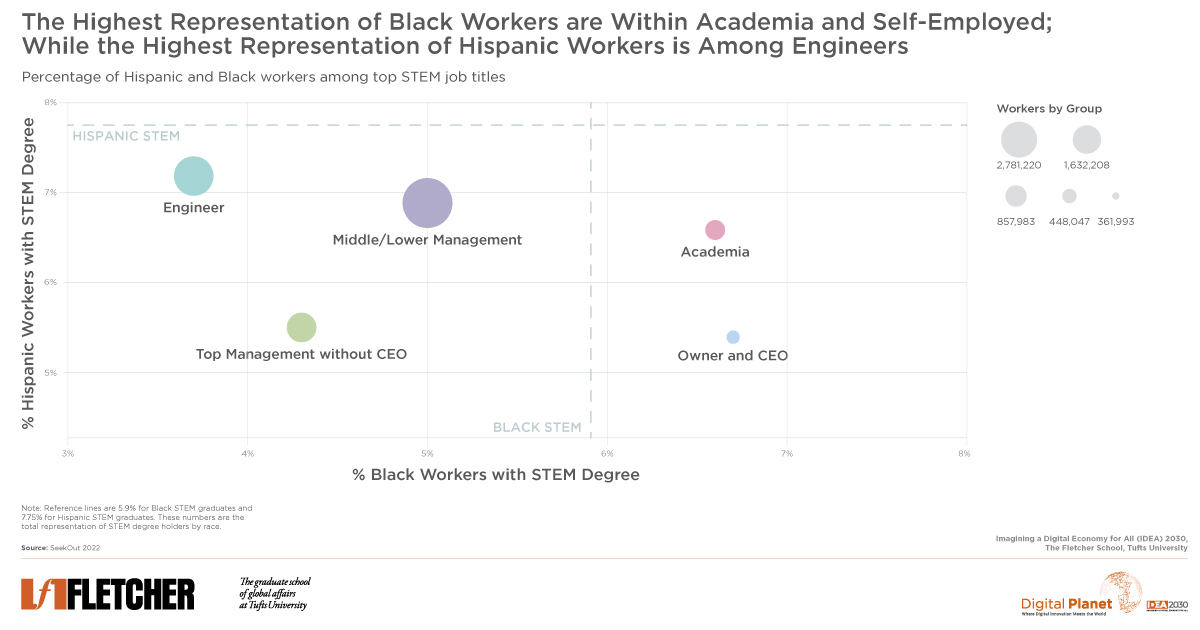
Despite strides in college attainment, Black Americans encounter obstacles in pursuing lucrative careers, especially in high-paying STEM roles within the technology sector.
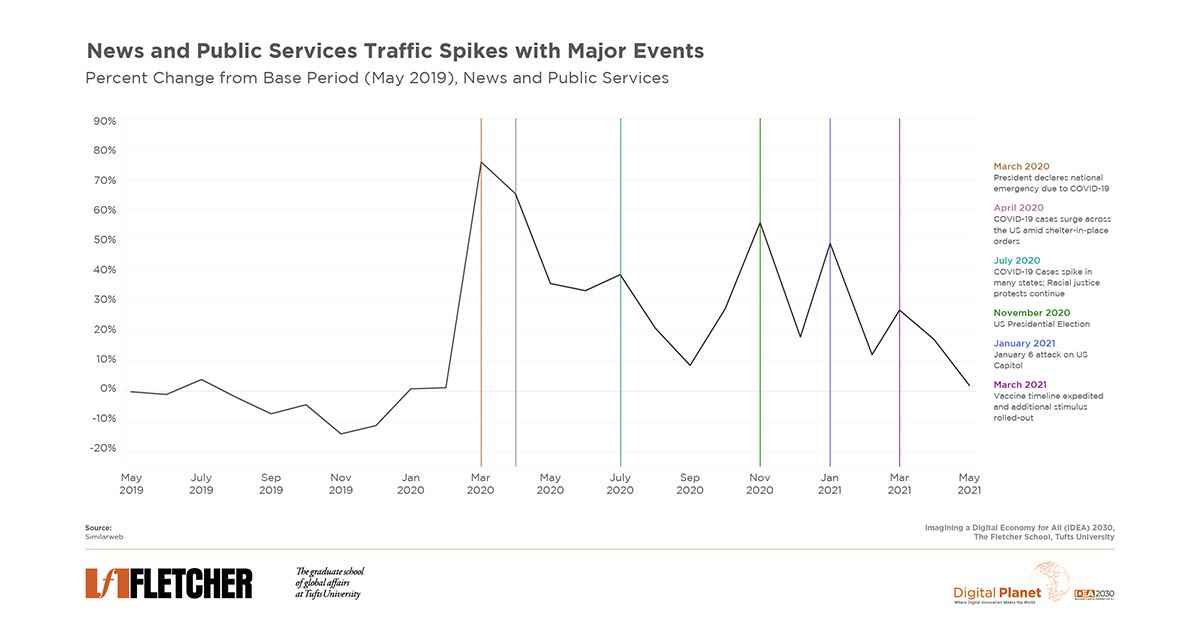
During the online shift, global digital adoption surged, advancing us digitally by 5 years in just 8 weeks.
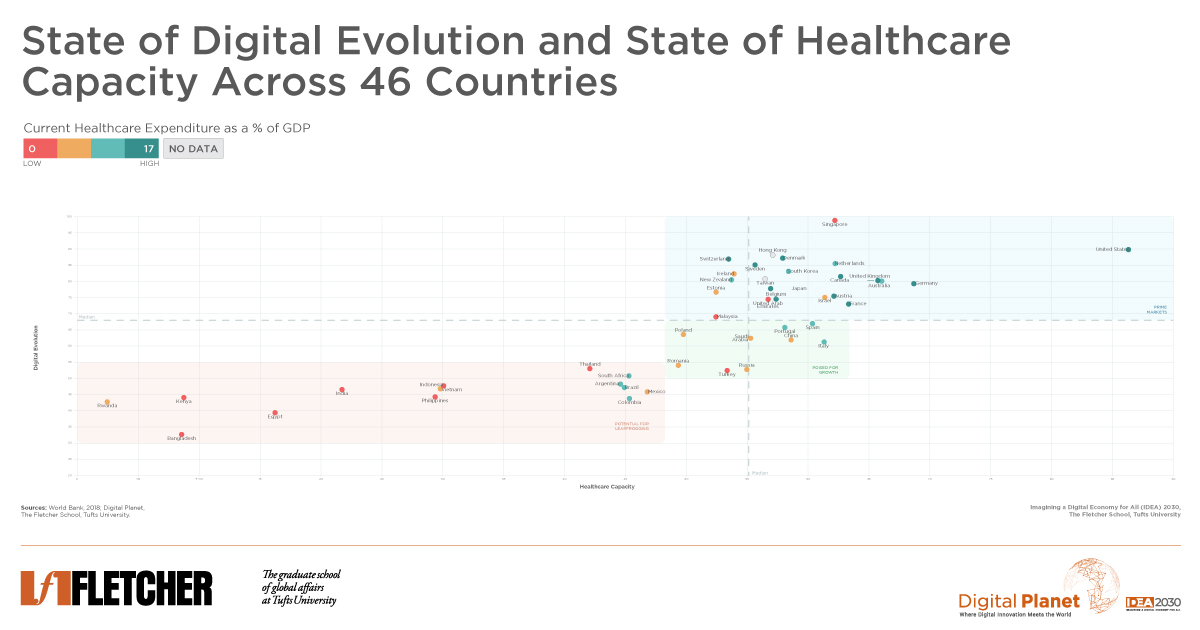
Global healthcare digitization varies wildly. Our study in 46 countries identifies virtualized healthcare opportunities, enabling lagging nations to leapfrog with digital tools for quality care.
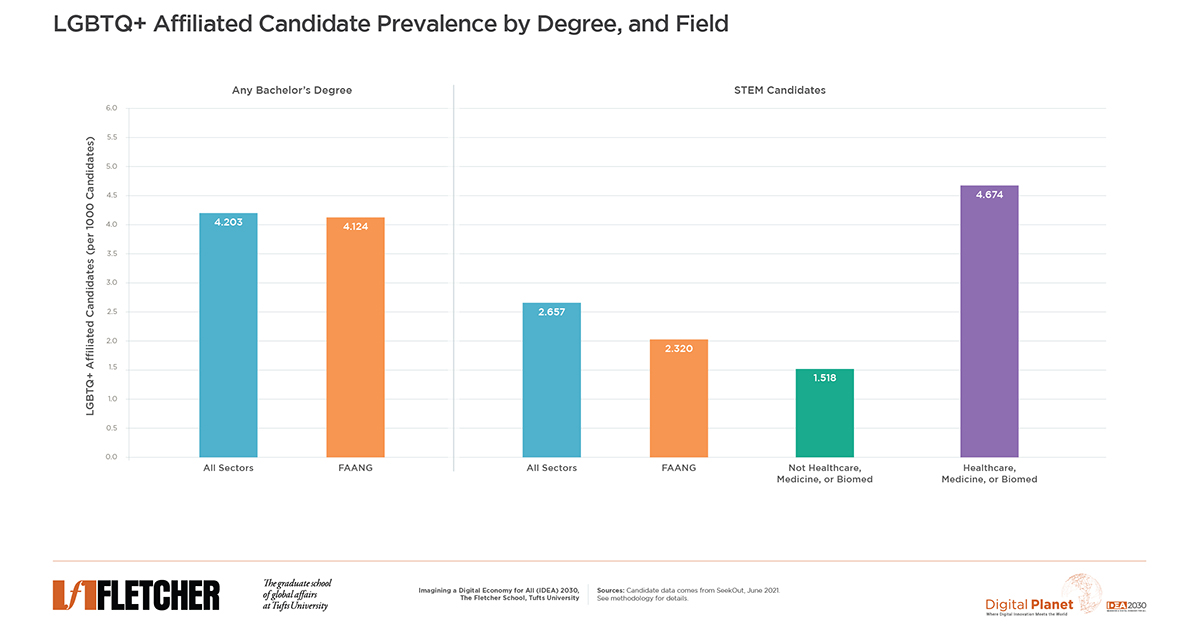
Digital Planet explores LGBTQ+ solidarity in STEM for Pride Month. STEM grads express less LGBTQ+ on resumes. Women in STEM are twice as likely as men to affiliate with the gay community.
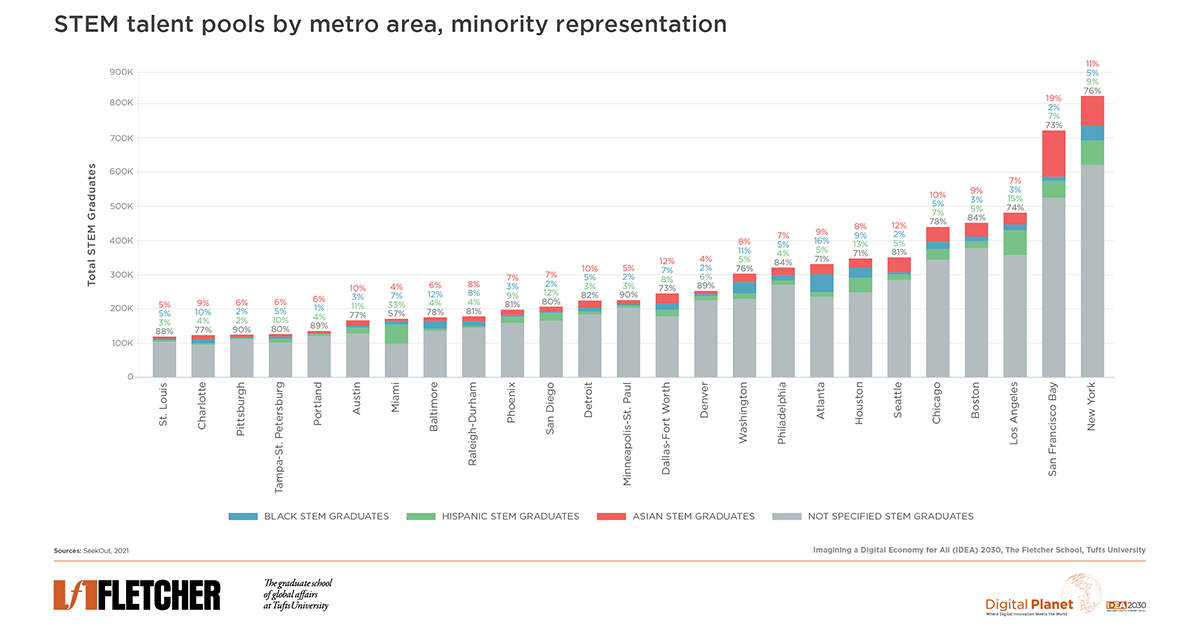
In the evolving work landscape, how can we boost under-represented talent (e.g., Black, Hispanic, female) in high-demand roles? Where can organizations find these diverse pools in major U.S. metro areas?

Why are we so divided about the true state of the digital divide in America? What steps might the Biden-Harris administration take to clarify the reality of this divide and move toward closing the gap? This webinar examines how these changes can be transformational for a recovering, yet socially distanced economy.
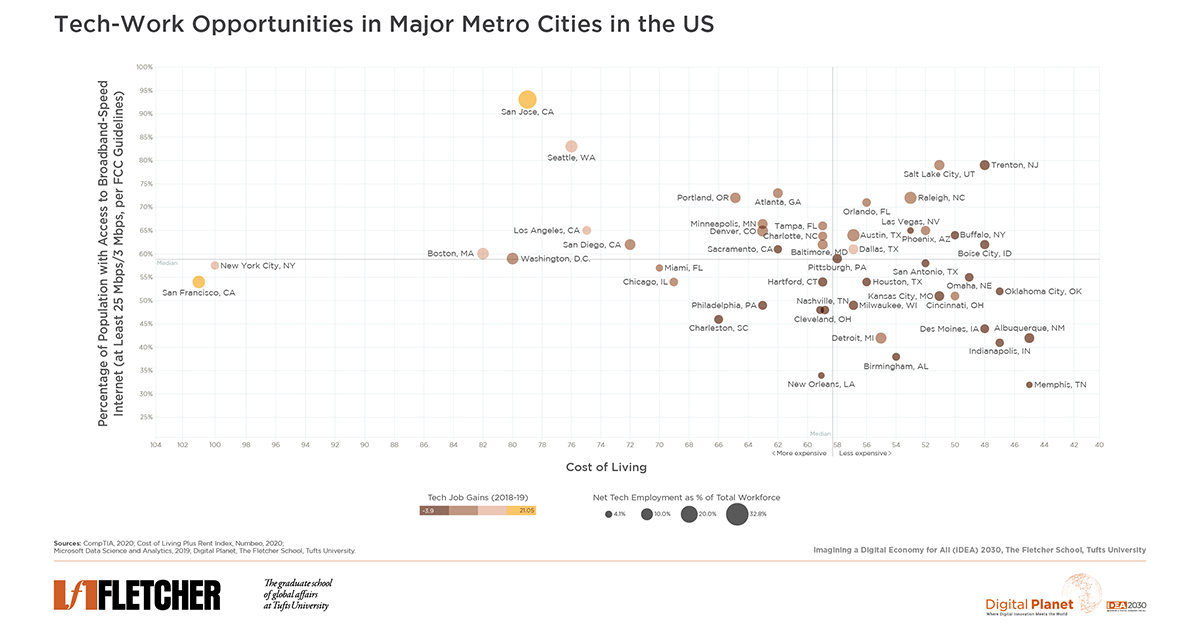
US States expanded telehealth, yet 16 of them face challenges with subpar broadband, hindering digital healthcare access.
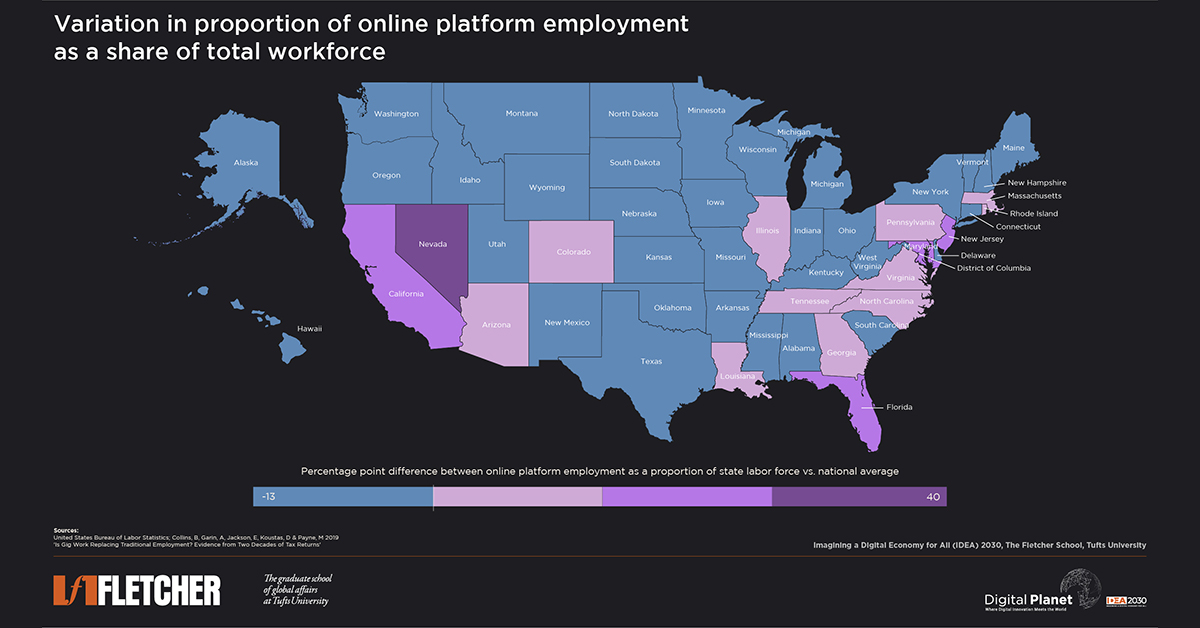
Digitally ready states thrived during the pandemic, leveraging gig workers for essential services. Yet, it revealed disparities and vulnerabilities in the gig economy.

An interactive research report that indexes trust in the digital economy and its evolution across 90 economies during the COVID-19 pandemic. This report features a collaborative research platform that provides data and evidence-driven actionable insights to leaders in government, business and technology.
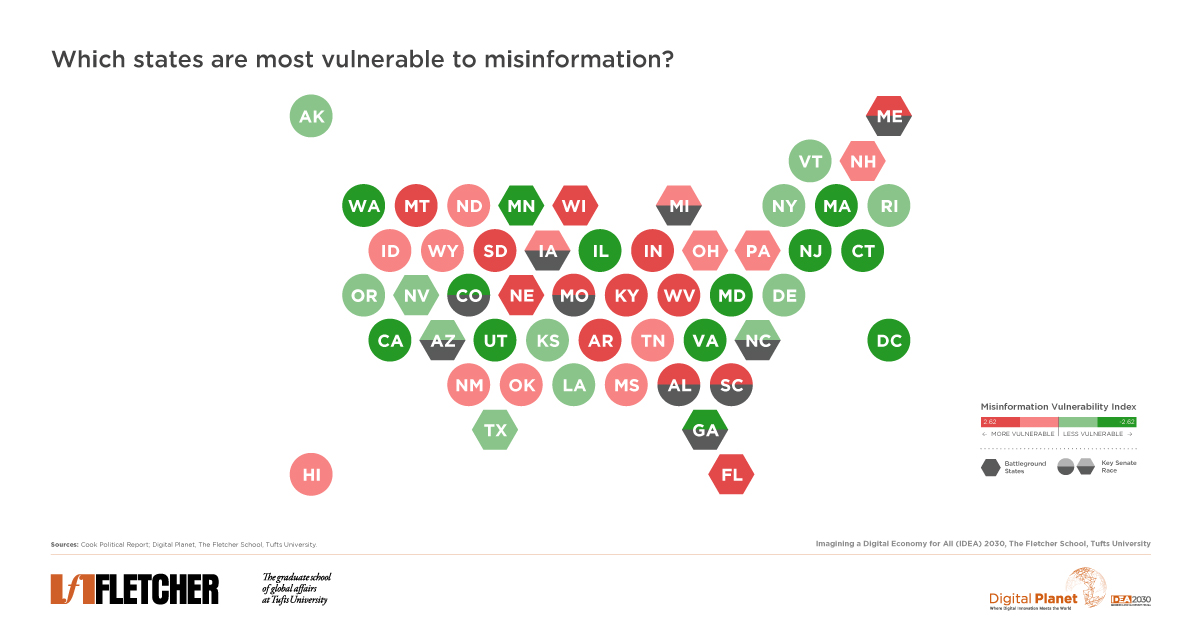
US parties race, relying on digital platforms. Public dependence on social media for news raises concerns about misinformation amid the COVID-19 pandemic, fueling a surge in digital crime.
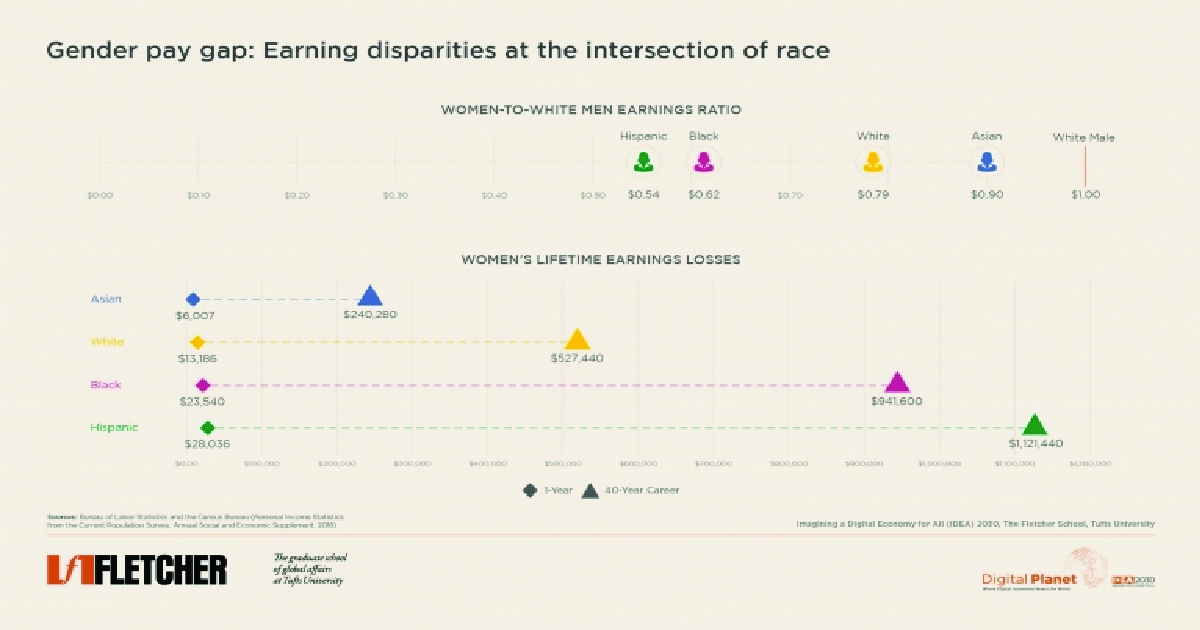
US women earn 82¢ for every dollar men make, worsened by race and education factors.
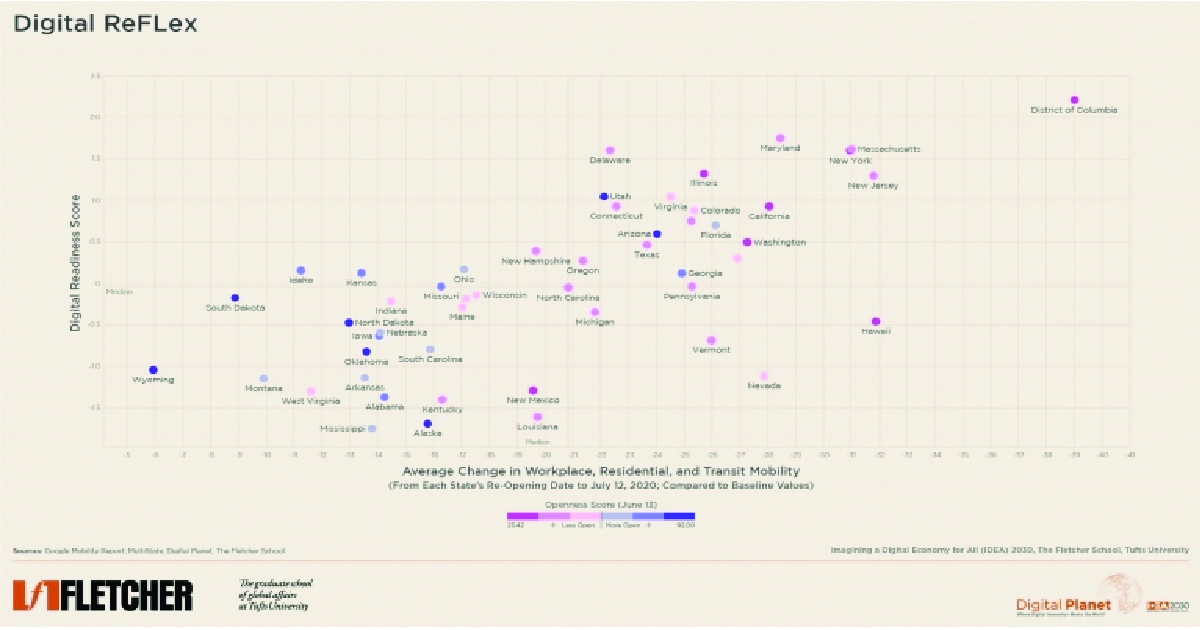
States, amid surging virus, reverse reopenings. Digital-ready states endure lockdowns better, with strict distancing measures for effective COVID-19 control.
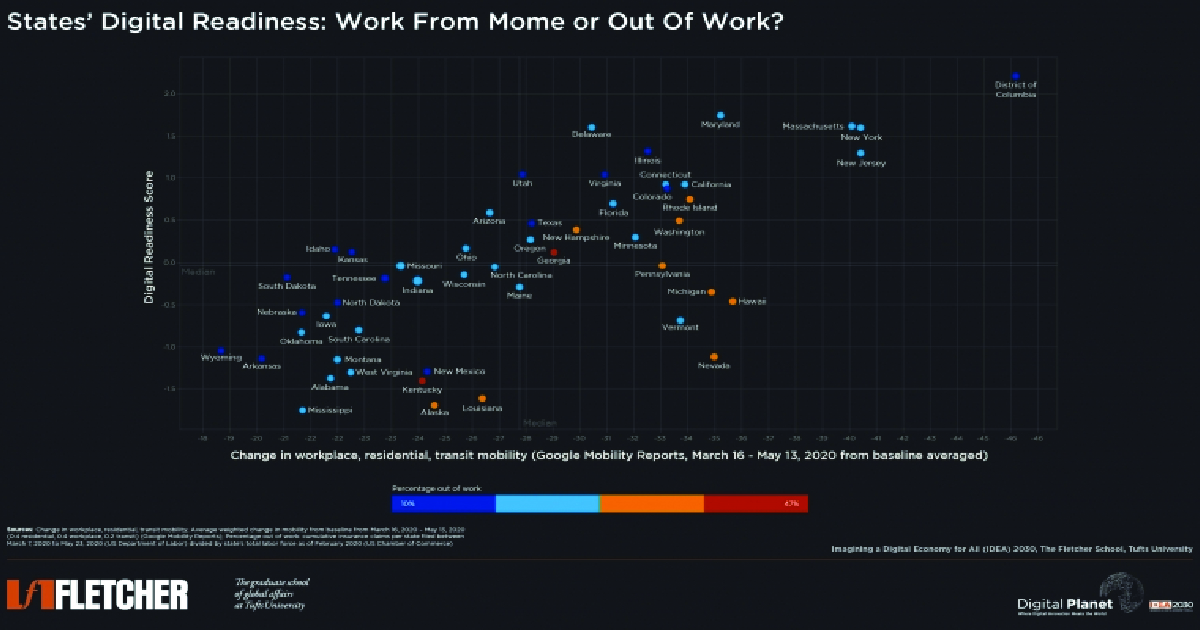
During the COVID-19 lockdown, US States that were least digitally ready and had the strictest social distancing measures experienced the highest unemployment numbers.
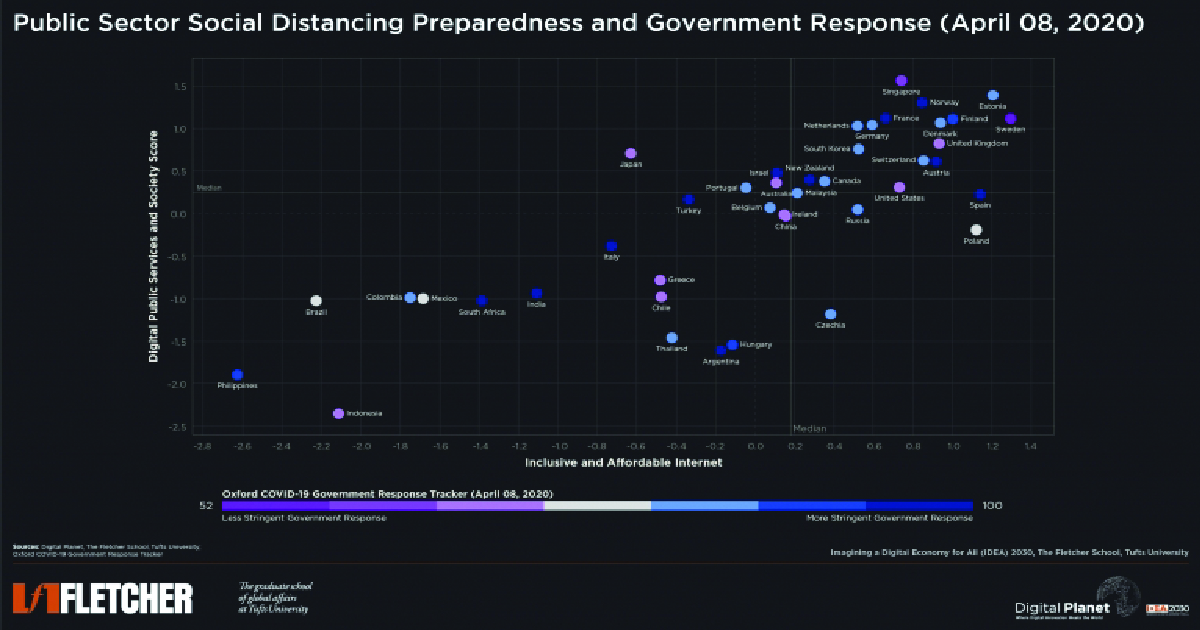
Online public services need infrastructure and affordable internet. We scored 42 countries on digital services and internet access, considering lockdown measures.

Watch the video summary to learn more about the key takeaways from the African Leapfrog Index.

Online public services need infrastructure and affordable internet. We scored 42 countries on digital services and internet access, considering lockdown measures.
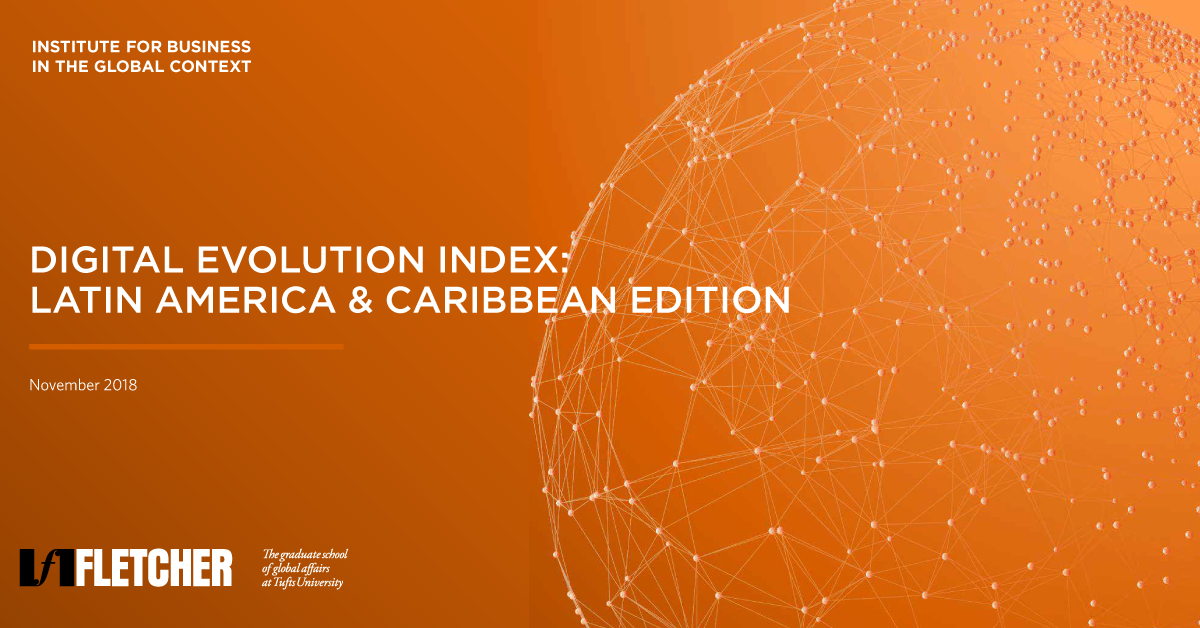
The Digital Evolution Index: Latin America and Caribbean Edition (DEI LAC) is a data-driven study of the pace of digital growth in 24 LAC countries across four key drivers of supply, demand, institutional environment, and innovation. It utilizes 99 unique indicators measured over a ten-year period (2008 – 2017) to create an overall digital evolution score and digital momentum score.

If the yardstick of effectiveness of any scorecard or ranking were tangible efforts, by those graded, to “improve bad ratings or maintain good ones,” few come even remotely close to the World Bank’s annual Doing Business survey.
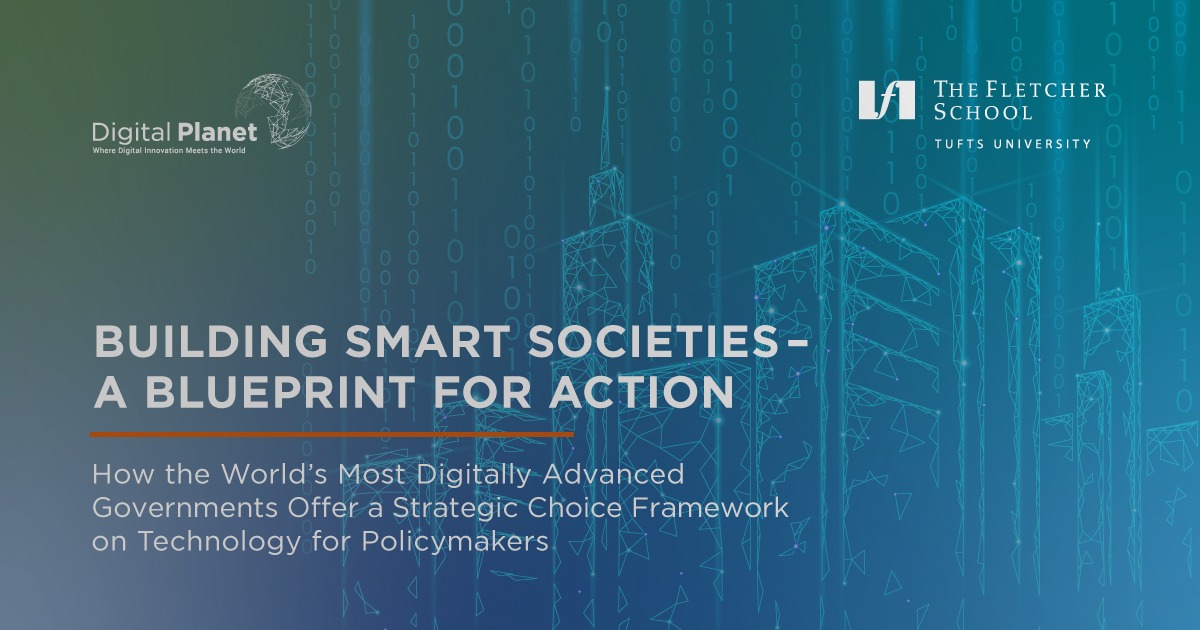
Which countries help expedite entry, growth, and exit of technology-based businesses?
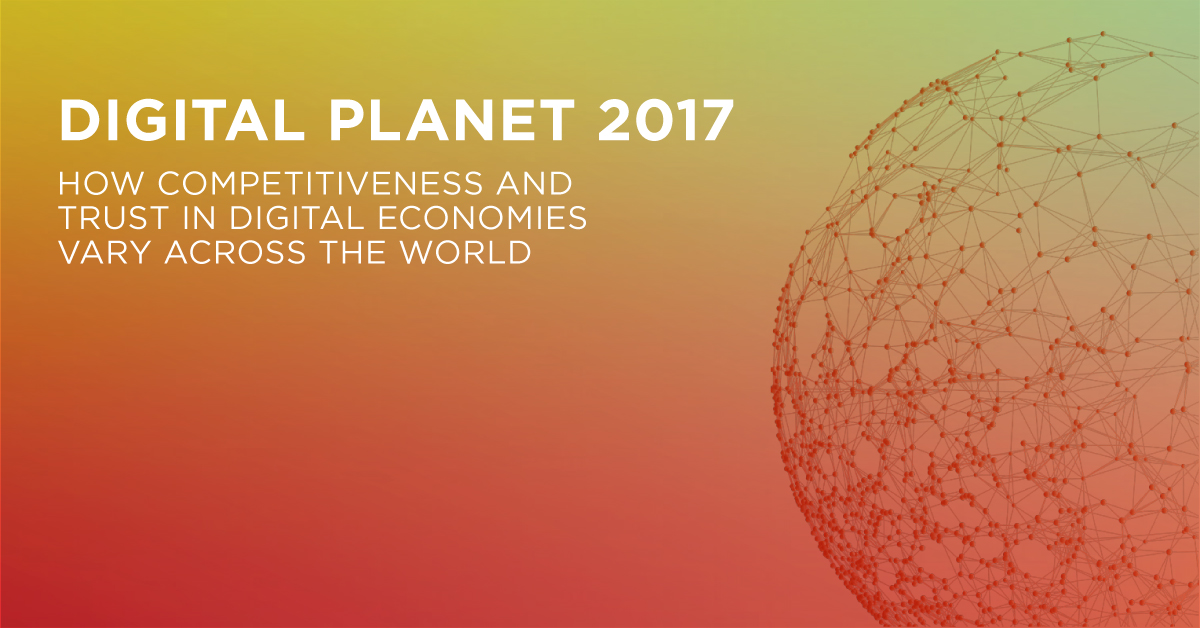
The Digital Evolution Index 2017 is a data-driven holistic evaluation of the progress of the digital economy across 60 countries, combining more than 100 different indicators across four key drivers: Supply Conditions, Demand Conditions, Institutional Environment, and Innovation and Change. The resulting framework captures both the state and rate of digital evolution and identifies implications for investment, innovation, and policy priorities.